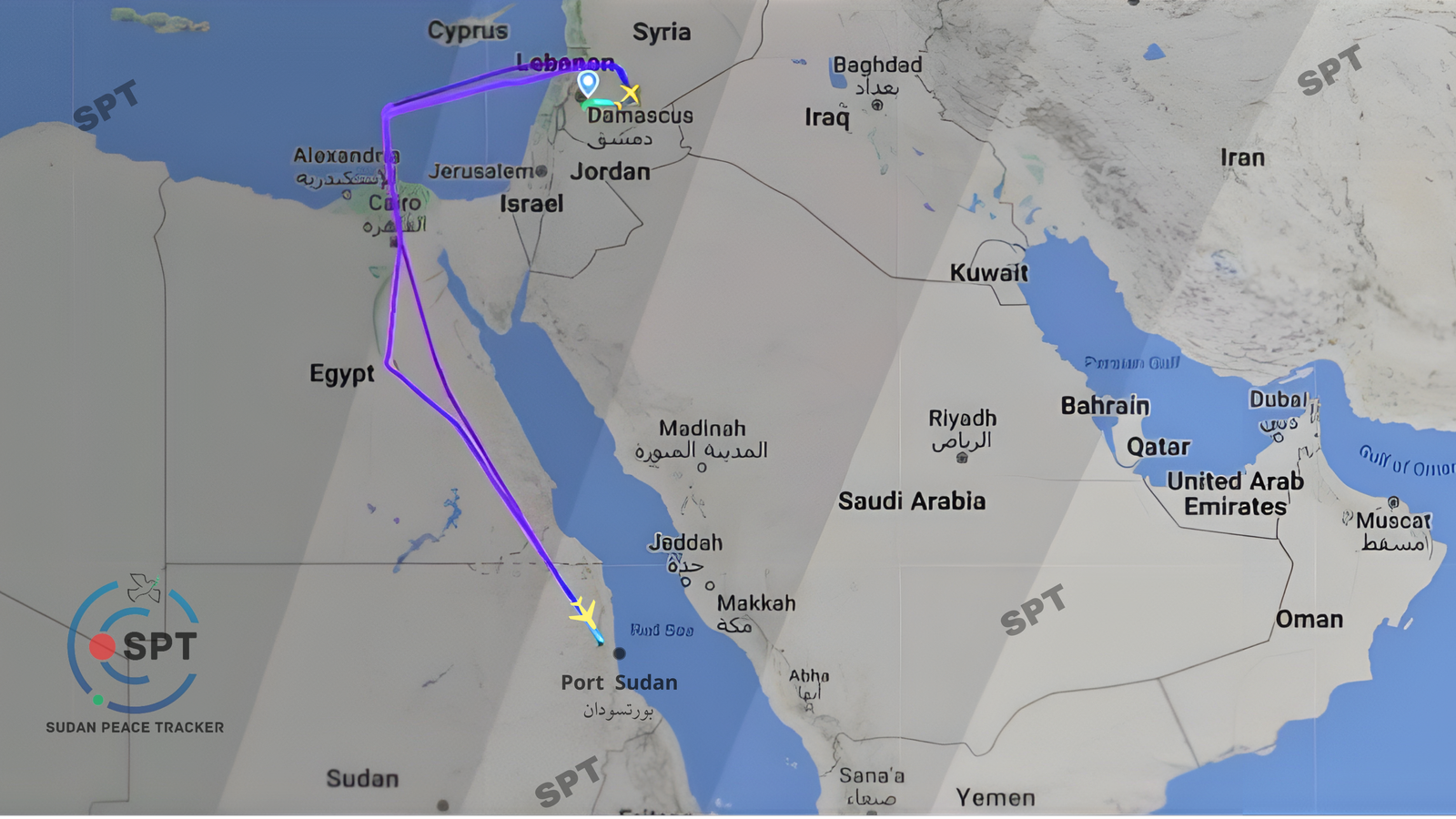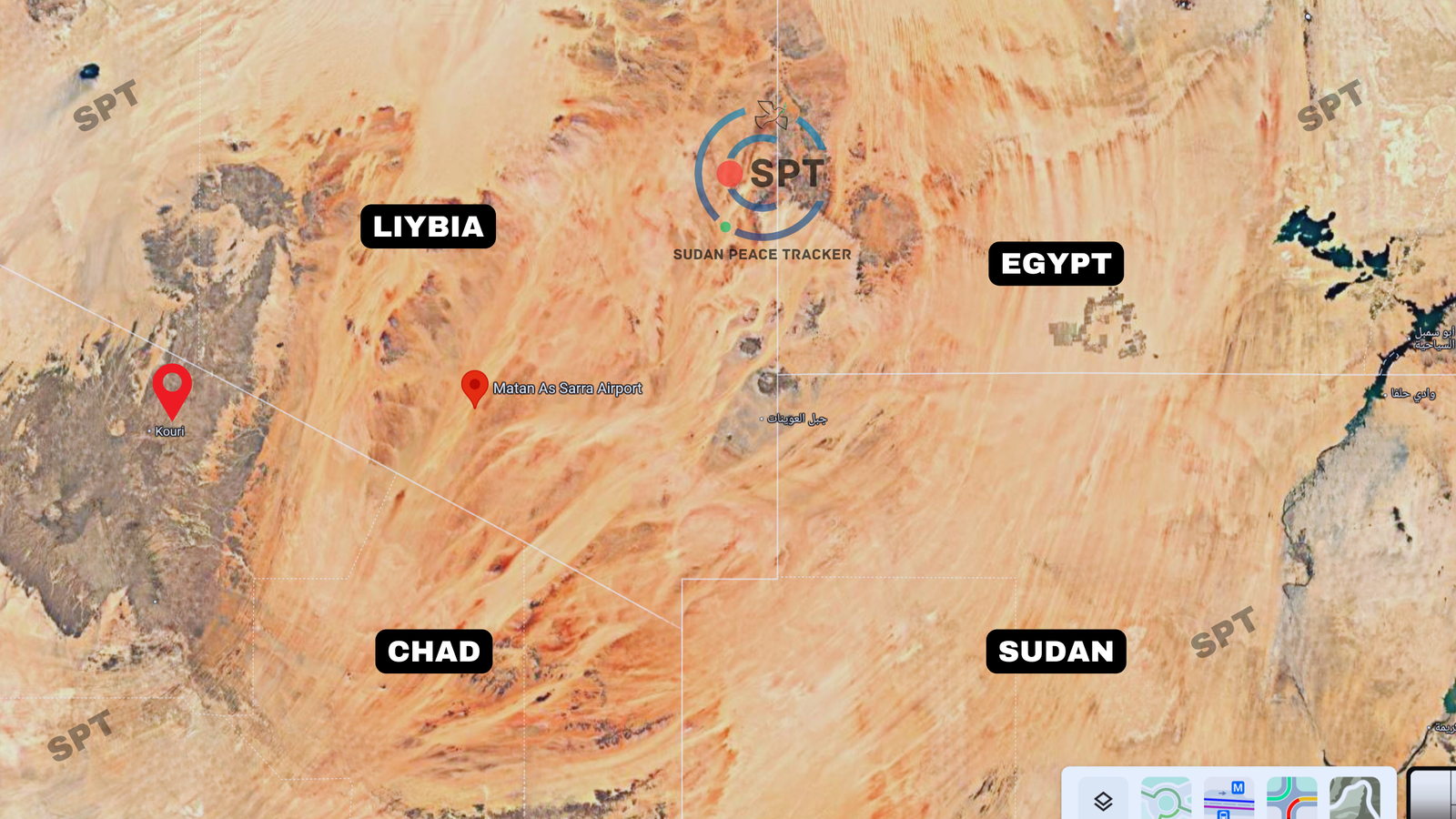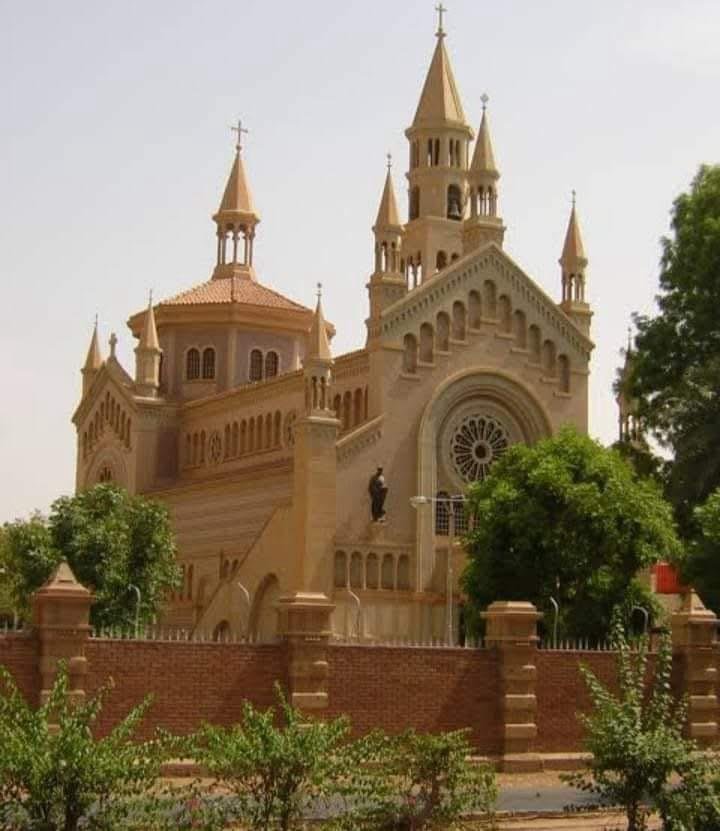Report: SPT
Satellite imagery has revealed reconstruction activities at an abandoned Libyan military base dating back to the 1980s, located in southeastern Libya near the borders with Sudan and Chad.
The ConflictX platform, specializing in geopolitical analytical videos, published images showing work being carried out at the military base, claiming that Russia is developing it into a military facility.
The images and data indicate that the Russian military base is situated at a strategic location near the borders of Sudan and Chad. It is also close to the gold mines in the “Kouri Bougoudi” area in northern Chad, approximately 30 kilometers from the Libyan border.
Wagner Returns to Sudan:
Sudanese military sources reported that the base currently under construction is an old military base, originally built in the 1980s and known at the time as “Maatan Al-Sarra Air Base.” It was established to manage air operations during the Libyan-Chadian war of that era.
The sources confirmed that the base is being rebuilt to serve as a military facility for the African Corps—formerly known as Wagner—affiliated with the Russian Ministry of Defense.
The sources warned of the risks posed by the presence of the African Corpsto Sudan’s security in this strategic region. They noted that Russia aims to expand its influence in Africa to dominate its resources, particularly gold and uranium, while also securing its position on the international trade routes in the Red Sea, with Sudan being a focal point of its strategy.
A Sudanese military expert stated that the danger lies in Russia’s efforts to compensate for its loss of the Hmeimim Air Base in Syria by utilizing Al-Khadim Air Base near Benghazi, Libya, and establishing Tobruk on the Mediterranean Sea as an alternative to the Tartus port in Syria. This approach bolsters Russia’s permanent presence in areas close to Sudan.
International reports indicated that after the fall of Bashar al-Assad’s regime in Syria, several Russian flights were organized from Syria to Libya as part of a broader plan to secure an alternative military supply route. This strategy seeks to maintain Russia’s foothold in Africa while ensuring a presence in the Mediterranean.
Mysterious Flight from Damascus to Port Sudan:

On December 6, 2024, an Ilyushin Il-76T aircraft bearing the registration YK-ATA landed at Port Sudan Airport, arriving from Damascus. The timing of the plane’s arrival raised suspicions, occurring just two days before the fall of Syrian President Bashar al-Assad’s regime.
Reliable military and security sources in Port Sudan confirmed that the aircraft was carrying military equipment, including advanced air defense systems, according to one source.
The sources also reported that the plane transported a number of military personnel who were seen disembarking. The aircraft remained at Port Sudan Airport for approximately seven hours before departing back to Damascus, taking several individuals with it. It remains unclear whether these individuals were Russian military personnel or civilians, as the plane was heavily guarded by Sudanese military intelligence, the source added.
African Corps Delegation in Northern Sudan:
Around the same period, a Russian military team, identified by sources as being part of the African Corps, also arrived in Port Sudan.
According to the sources, the Russian military team primarily consisted of air defense specialists, particularly those experienced in radar and drone operations. The team stayed in Port Sudan for several days before being relocated to the city of Merowe in Sudan’s Northern State, situated on the eastern bank of the Nile River.
It remains unclear whether Merowe, which houses an airport, was the team’s final destination or a transit point to another location.
The Russian Naval Base on Sudan’s Red Sea Coast:
The potential establishment of a Russian naval base on Sudan’s Red Sea coast remains shrouded in secrecy and ambiguity. According to multiple sources, only the army chief and a select few of his close aides are privy to the details of this contentious matter.
In November 2021, following his coup against Sudan’s transitional civilian government, General Abdel Fattah al-Burhan, the army chief, stated that Sudan was committed to constructing a Russian naval base and would honor the agreement—referring to the deal signed by ousted President Omar al-Bashir with Russia in 2017.
Well-informed Sudanese military sources revealed that Burhan effectively revived the agreement in April 2024 during a visit to Port Sudan by Russian Mikhail Bogdanov, a key envoy for President Vladimir Putin to Africa and a figure responsible for overseeing the African Corps.
On June 1, 2024, Sudan’s ambassador to Russia, Mohamed Siraj, confirmed to Russia’s Sputnik News that Sudan would uphold its commitments to the construction of the Russian naval base on the Red Sea. He stated that the project would proceed, describing the base as a “logistical support point in the Red Sea.” Siraj also noted that the agreement between the two countries had been signed and that only a few administrative steps remained before its implementation.
As Sudan’s future remains shrouded in uncertainty amid the ongoing war and the resulting divisions that now threaten the country’s unity, politicians and civilian leaders view Russian involvement in Sudan and its surrounding region as a significant threat to the nation’s security, stability, and the freedom of its people—both now and in the future.
This presence, they argue, exacerbates the conflict by prolonging the war through support for rival factions to serve Russia’s strategic interests. This not only jeopardizes Sudan’s future but also obstructs efforts to end the war, establish peace, and begin reconstruction.
Moreover, the growing Russian influence poses a serious risk to Sudan’s sovereignty and the prospects for a democratic civilian government. As a result, ending the war and confronting foreign interventions have become urgent priorities to ensure a secure and stable future for Sudan.




